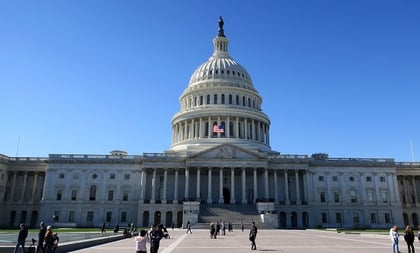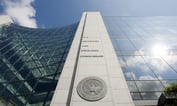If the House flips to the Democrats in tomorrow’s midterm election and Rep. Maxine Waters, D-Calif., becomes chairwoman of the House Financial Services Committee, Securities and Exchange Commission Chairman Jay Clayton will likely be in the hot seat over the agency’s advice standards package.
Assuming the SEC adopts Regulation Best Interest, Waters could call in Clayton “to explain how it serves the best interest of clients, and also have a top-heavy list of consumer organization witnesses to make their point that they dislike it,” Duane Thompson, senior policy analyst at Fi360, a fiduciary education, training and technology company, told ThinkAdvisor on Monday.
Waters, the likely new chair of the Committee replacing Rep. Jeb Hensarling, R-Texas, was one of 35 House and Senate Democrats who signed a letter to Clayton “complaining that the SEC did not follow the Dodd-Frank mandate to establish a uniform fiduciary standard for both advisors and brokers,” Thompson notes.
If the House shifts to Democratic-control and the Senate stays in Republicans’ hands, also expect a lot of “headline noise,” particularly from the House, meaning Democrats will focus on “messaging through legislation that can pass the House but not the Senate, as well as oversight hearings,” Thompson opines.
While gridlock will likely ensue, one exception will be the “lame duck” session of Congress after the Nov. 6 vote, when Congress returns to wrap up unfinished business.
(Related: Insiders Go Deep on Midterm Predictions)
Regarding retirement savings, “there is considerable bipartisan support for legislation that would encourage retirement savings, which could come to fruition once Congress comes back after the election,” Thompson said.
Also expect renewed legislative activity at the state level “to raise the bar for investment advice,” Thompson added. “Most or nearly all of this activity would be limited to ‘blue’ states where Democrats control both chambers.”
The National Association of Insurance Commissioners, he continued, “is in the final stages of approving a model rule covering annuity transactions,” which would “likely beef up the suitability requirements but not rise to the level of a fiduciary standard.”
Thompson says all advisors eyes should be on the regulatory implications of the Labor Department and SEC advice rules. “It is very likely the DOL will let the SEC take the lead in most overlapping areas covering investment advice, and likely wait for the SEC to act on Regulation Best Interest before responding with a final fiduciary rule of its own that would not break much new ground.” Rather, a new Labor rule would likely create “more safe harbors for conflicted advice under ERISA as long as the advisor and firm is in compliance with Reg BI or Advisers Act requirements.”
Midterms Market Impact
Greg Valliere, chief global strategist for Horizon Investments, offered his “final election call” Monday by reiterating that “there will be no tidal wave,” and that the Republicans will keep the Senate, probably adding two net seats.









 November 05, 2018 at 04:07 PM
November 05, 2018 at 04:07 PM











